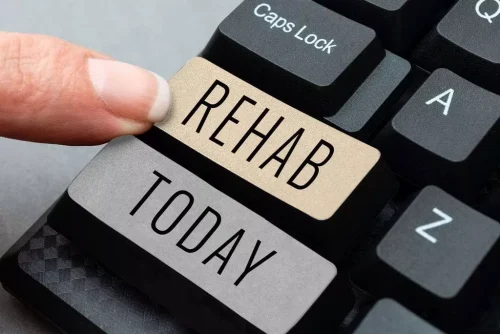
Unlock the secrets to boosting emotional intelligence effortlessly with expert tips and strategies for growth. At the end of the play, the protagonist confronts adverse responses to a problem and establishes productive ways to handle a crisis. It also resolves emotions and provides relief for participants within a safe and accepting circle. There are multiple rehab payment options, including using insurance coverage for rehab.
The Benefits of Mindfulness in Addiction Recovery
Engaging in creative activities allows individuals to explore underlying issues related to substance abuse, helping them understand and address their triggers and behaviors. This technique is also valuable in process groups, where members can role-play their feelings and experiences, helping them articulate challenges within a supportive environment. ChoicePoint aims to improve the quality of life for people struggling with substance use disorder and mental health issues.
Certified Community Behavioral Health Clinics

Engagement in peer support networks is crucial for individuals in recovery, as these networks promote accountability and shared experiences. By connecting with others who have faced similar challenges, individuals can gain encouragement and https://ecosoberhouse.com/ motivation to continue their recovery journey. These activities allow participants to act out interactions they might encounter during their recovery journey, providing a safe environment to practice and refine their skills. Role-playing helps individuals develop better communication skills and enhances their ability to handle challenging situations. Effective group therapy activities are essential for fostering engagement and facilitating recovery in substance abuse treatment.
- This involvement promotes empathy and support, which are crucial for recovery.
- Zainab is a skilled member of the ChoicePoint team of medical content writers.
- These exercises provide a platform for validating feelings and addressing unresolved issues with family members and loved ones.
Top 30 Substance Abuse Group Activities

Substance abuse group activities focus on creating an environment where members feel safe sharing their thoughts and experiences. Substance abuse group activities can range from collaborative exercises that require teamwork to sharing personal anecdotes or engaging in empathy-building exercises. By fostering a sense of belonging and camaraderie, substance abuse group activities strengthen members’ bonds and encourage forming a cohesive, supportive community.


Team-building exercises and trust-building games foster a sense of belonging and mutual support among people in recovery. These activities teach people in recovery to recognize and reframe negative thought patterns, enabling them to develop healthier coping mechanisms. Engaging in healthy, active pursuits provides an effective way to manage stress, one of the most common relapse triggers. Engaging in art, music, or Sober living house writing within a supportive group setting encourages participants to explore their thoughts and emotions. A common drug addiction recovery technique is the use of group facilitation.
Activities to increase awareness of the benefits of sobriety
- Help group members who might be struggling with this by brainstorming affirmations for them.
- The calming effects of natural settings can mitigate stress and anxiety, allowing recovering individuals to better manage cravings.
- Engaging in creative activities allows individuals to explore underlying issues related to substance abuse, helping them understand and address their triggers and behaviors.
- They help reduce stress and anxiety, providing a calming environment that allows for mindfulness and emotional grounding.
- Some people find it hard to say no to substance use in social gatherings or parties.
- We believe that financial barriers should not prevent anyone from accessing high-quality addiction treatment.
This session discusses the importance of setting personal boundaries and provides strategies for communicating them effectively with others. Identifying and celebrating personal strengths can boost self-esteem and resilience. This activity helps members recognize qualities they may have overlooked and encourages them to draw on these strengths as substance abuse group activities they navigate their recovery journey.